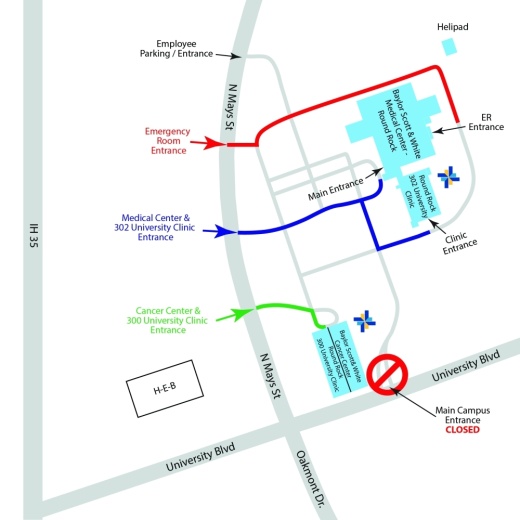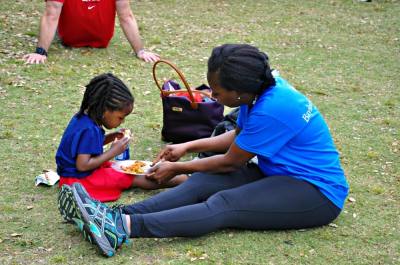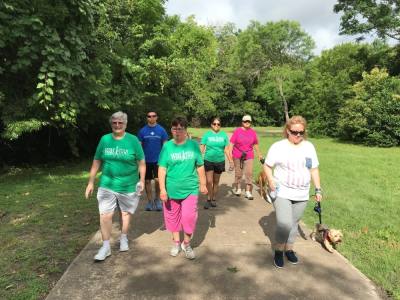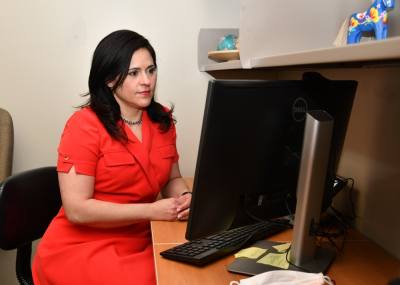The pandemic has changed many aspects of our daily lives, and changes like these can cause fear, uncertainty, anxiety, sadness and other feelings that we might typically have been able to work through more easily in the past. If negative feelings are impacting you, you are not alone – according to multiple studies, more than 40 percent of people have reported at least one adverse mental or behavioral health condition related to the COVID-19 pandemic.
The behavioral and psychological health providers at Baylor Scott & White Medical Center – Round Rock are ready to help. From talk therapy to psychological assessments, the team can evaluate your needs and help you put together a plan with techniques to manage stress, practice mindfulness and more.
If you decide that it’s time to make an appointment, plan for a little extra drive time to reach the facility.
For the next few months, the city of Round Rock will be continuing a roadwork expansion project on University Boulevard, between the Interstate Highway 35 frontage road and Sunrise Boulevard. During construction, the main entrance to the Baylor Scott & White – Round Rock campus will be closed and patients can access the building from North Mays Street. Just follow the signs to get where you need to go.
Mental Health Matters, Now More Than Ever
Although there might be changes coming to the area surrounding the facility, once inside, you will find the same quality mental healthcare the Round Rock area has relied on for years. This includes psychiatric and behavioral health services, which may be especially needed during difficult times like the past year.
“We’ve seen more demand for mental health services,” said Joanne Sotelo, MD, a psychiatrist on the medical staff at Baylor Scott & White Clinic – Round Rock 425 University. “Within those first months of COVID-19, we saw an increase in referrals, and it has been ongoing since then in adults, teenagers and young kids.”
Dr. Sotelo added that she’s seen more instances of depression, anxiety and substance abuse in people who had preexisting struggles as well as those who never did before COVID-19. But there is also a positive note: The pandemic has helped reduce the stigma surrounding mental health, getting more people to talk about it.
How to Cope During COVID-19: 4 Tips to Try
As conversations about mental health grow, many people have been looking for ways to feel better. Dr. Sotelo has some advice.
“We cannot feel victim of our circumstances,” she said. “Those circumstances may be real, but we have to remind ourselves that we have control over a lot of things. Ask yourself: ‘What is one thing I can do now to make myself better?’”
These tips also may help:
1. Get back to the basics.
Anyone struggling with mental health should get back to the basics, Dr. Sotelo suggests. That means maintaining good-for-you habits: Eat well, stay active, get sleep, and limit things like alcohol and caffeine.
“There are foods that support our brain and mental health, such as omega-3 fatty acids, which is a natural antidepressant,” Dr. Sotelo said. “We also know that eating too much sugar can affect our mood and energy. I also recommend drinking plenty of water and getting exercise, since moving the body throughout the day can benefit mental health. And of course, make the most of your sleep by setting a bedtime routine, keeping your room cold and dark, and limiting late-night electronics.”
2. Reconnect with others.
While taking care of yourself may seem like a solitary practice, there’s value in having others involved in your self-care.
“Social connection is really good for the brain,” she said. “Now more than ever, we should be thinking about how to reconnect with others safely.”
Social self-care also means helping others. Even a simple check-in to make sure a friend is okay or an offer to get a neighbor’s groceries can make a difference. If you’re feeling down, go out and serve others. Meeting the needs of others can be great therapy.
3. Look for healthy ways to cope.
Some stress is inevitable, but you can better manage it with healthy coping behaviors. These include acts of self-care like exercising or reading a good book.
Get creative. Take up camping or fishing. Work exercise into your day. Try riding a bike.
Similarly, you should limit unhealthy coping behaviors. Those can be trickier to identify.
“Sometimes we do things to numb our emotions, but you should be careful not to let those escapes become excessive or isolating,” Dr. Sotelo said. “Going on social media for hours, for example, can be a sign of not dealing with your emotions. There’s nothing wrong with these activities in moderation, but they can cross the line when they interfere with your life.”
If you find yourself coping in an unhealthy way, pull yourself out with an awareness exercise. Ask yourself: “What feelings am I trying to ignore, and can I find a better way to manage them?”
4. Know when to get professional help.
Despite our best efforts, sometimes mental health problems persist. If you are struggling and nothing seems to be working, it might be time to talk to a doctor.
You can start that conversation with your primary care doctor or someone specializing in mental health, such as a psychotherapist or psychiatrist. Mention any physical symptoms you have, such as headaches, muscle pain or upset stomach. They may be relevant.
“Mental health struggles can appear with physical symptoms,” Dr. Sotelo said, adding that it’s important to rule out underlying conditions by first speaking with a primary care doctor about physical concerns. “If you’ve already seen your doctor and determined nothing’s wrong physiologically, those symptoms may be anxiety manifesting itself differently.”
We All Have Struggles, and That’s Okay
Mental health matters for everyone, even those providing care. In fact, these tips are so important that Baylor Scott & White Health encourages them for employees — from doctors and nurses to the office staff.
Baylor Scott & White employees can access resources and tools to support different aspects of mental health, from promoting “me time” to “spiritual time” and more. Through videos, articles and a 24-hour hotline, the initiative helps Baylor Scott & White employees access care when and where they need it.
“We can’t ask our employees to take care of our patients if we’re not making sure that we have the resources they need to take care of themselves,” said Nakesha Lopez, chief human resources officer at Baylor Scott & White. “It’s very important for our people to come to work, to be fully engaged with their patients, and to know that this is a safe place where they can be their whole self — even in a year as challenging as this one.”
The challenges may continue for a while. Even so, self-care is one of the best things anyone can do during these or any other times of struggle. Take care of yourself and others, and you might be surprised how your resilience thrives.
For turn-by-turn alternate driving directions to the Round Rock campus during the road construction project, visit www.bswhealth.com/roundrock/construction-updates.
Physicians provide clinical services as members of the medical staff at one of Baylor Scott & White Health’s subsidiary, community or affiliated medical centers and do not provide clinical services as employees or agents of those medical centers or Baylor Scott & White Health.
Select your community
Support Us
News
- Austin Metro
-
Houston Metro
- Houston Metro Home
- Bay Area
- Bellaire | Meyerland | West University
- Conroe | Montgomery
- Cy-Fair | Jersey Village
- Cypress
- Heights | River Oaks | Montrose
- Katy | Fulshear
- Lake Houston | Humble | Kingwood
- New Caney | Porter
- Pearland | Friendswood | Manvel
- Spring | Klein
- Sugar Land | Missouri City
- The Woodlands
- Tomball | Magnolia
- Dallas | Fort Worth Metro
- San Antonio Metro









